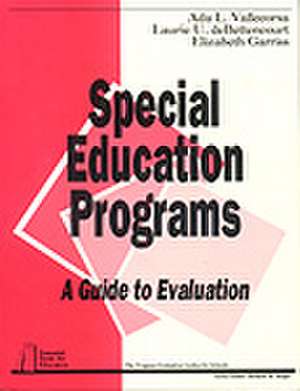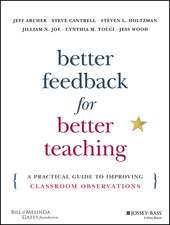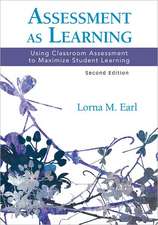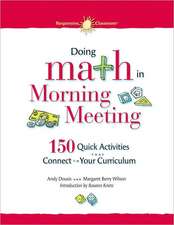Special Education Programs: A Guide to Evaluation: Essential Tools for Educators series, cartea 2
Autor Ada L. Vallecorsa, Laurie U. deBettencourt, Elizabeth Garrissen Limba Engleză Paperback – 23 noi 1992
Preț: 237.53 lei
Nou
Puncte Express: 356
Preț estimativ în valută:
45.45€ • 47.46$ • 37.53£
45.45€ • 47.46$ • 37.53£
Carte tipărită la comandă
Livrare economică 15-29 aprilie
Preluare comenzi: 021 569.72.76
Specificații
ISBN-13: 9780803960343
ISBN-10: 0803960344
Pagini: 128
Dimensiuni: 216 x 279 x 10 mm
Greutate: 0.38 kg
Ediția:Wb
Editura: SAGE Publications
Colecția Corwin
Seria Essential Tools for Educators series
Locul publicării:Thousand Oaks, United States
ISBN-10: 0803960344
Pagini: 128
Dimensiuni: 216 x 279 x 10 mm
Greutate: 0.38 kg
Ediția:Wb
Editura: SAGE Publications
Colecția Corwin
Seria Essential Tools for Educators series
Locul publicării:Thousand Oaks, United States
Cuprins
Introduction
Vignette 1
Teachers' Needs for Staff Development
Vignette 2
Appropriateness of LRE Placements
Vignette 3
Satisfaction of Program Participants
Vignette 4
What's Going on in Classrooms?
Vignette 5
What's in an IEP?
Vignette 6
Assessing Generalization of Skills to Other Settings
Vignette 1
Teachers' Needs for Staff Development
Vignette 2
Appropriateness of LRE Placements
Vignette 3
Satisfaction of Program Participants
Vignette 4
What's Going on in Classrooms?
Vignette 5
What's in an IEP?
Vignette 6
Assessing Generalization of Skills to Other Settings
Descriere
This guide shows how school personnel can use evaluation to assess programme appropriateness, effectiveness, quality and improvement of special education programmes.
The authors suggest practical ways in which evaluation can benefit teacher and student. They illustrate: how to document needs and support requests for resources; how to reveal programme strengths and weaknesses and make informed, effective decisions on the need for change; how to compare promising programme alternatives by pre-testing and collecting data on a sample basis and determining effectiveness before widespread implementation; and how to diagnose aspects of programmes that must be improved to meet legal or external requirements. Non-technical terminology is used throughout.










